Fedora 25 now available -- makes it easier to switch from Windows 10 or macOS to Linux

After the release of both alpha and beta versions, Fedora 25 is officially here and ready for production machines. If you aren't familiar with the popular Linux-based operating system, please know that it is the distribution of choice for the founder of the Linux kernel, Linus Torvalds.
One of the most endearing qualities of Fedora is its focus on only offering truly free open source software. Also, you can always count on a very modern version of the Linux kernel being available. Despite having very up-to-date packages, it is always very stable too. My favorite aspect, however, is the commitment to the GNOME desktop environment; other DEs are available, though.
Zorin OS 12 Ubuntu-based Linux distribution now available -- a Windows 10 alternative
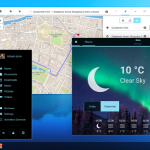
Windows 10 is a really great desktop operating system, but it is not for everyone. For those that care deeply about security and privacy, an open source Linux-based operating system is a wise alternative. The problem? Learning a new user interface can be hard for some. If you have always used a Windows OS in the past, moving to a desktop environment like GNOME or Unity can be confusing and scary.
Luckily, for those that have difficulty with change, there are some Linux-based operating systems that are designed for Windows-switchers. One fairly popular such offering, Zorin OS, has now reached version 12. It is designed to be familiar to former users of Microsoft's OS. While the company does charge for an "Ultimate" version, the "Core" edition of Zorin OS 12 is entirely free.
Microsoft releases SQL Server Preview for Ubuntu and Red Hat Enterprise Linux

Microsoft is a big proponent of open source, something highlighted by its becoming a Linux Foundation Platinum Member earlier today. The company has been contributing to multiple projects, and back in March, it even announced it was bringing SQL Server to Linux-based operating systems.
Today, the Windows-maker follows through on its promise and delivers SQL Server Preview packaged for two of the most popular business-used Linux-based operating systems -- Ubuntu and Red Hat Enterprise Linux (RHEL). While it is not ready for prime-time, both administrators and developers that prefer those aforementioned operating systems can start testing now.
Microsoft is now a Linux Foundation Platinum Member

The year 2016 has been very weird. I mean, hell, a reality TV star is the president-elect of the USA -- it doesn't get more odd than that.
Well, maybe it does, actually. Today, Microsoft becomes a Linux Foundation Platinum Member. But wait, isn't the Windows-maker an enemy of open source? Not anymore, folks. Actually, the company is a major contributor to the Linux kernel, and it has been embracing other open source projects too. Satya Nadella's Microsoft is a very different beast compared to the company under prior leadership.
Major Linux security hole found in Cryptsetup script for LUKS disk encryption

A security vulnerability discovered in numerous Linux distros potentially puts millions of users at risk. CVE-2016-4484 (Cryptsetup Initrd root Shell) affects the Cryptsetup script that is used to unlock partitions encrypted with LUKS (Linux Unified Key Setup).
The flaw means that it is possible for a hacker to access, change or delete data on the hard drive, and it is not even necessary to have physical access to exploit the vulnerability in every circumstance. But the worrying thing is just how easy the problem is to exploit.
A closer look at the OpenStack platform

Providing an open source platform for cloud computing, OpenStack allows the use of multi-vendor commodity hardware in a data center to process and store data, and deliver networking resources. It’s managed through a dashboard or an API and is used by many major companies around the world to manage their IT infrastructure.
OpenStack grew out of a joint project between NASA and Rackspace Hosting and launched in 2010. It’s currently managed by the not-for-profit OpenStack Foundation created in 2012. More than 500 companies are now members of the OpenStack project. OpenStack has a six-month release cycle with each release planned at a design summit. The software is modular with components focusing on different services.
Google unveils 'Code-in 2016' open source mentor organizations
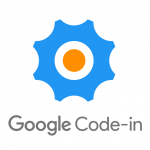
Open source software and ideology is critical to the future of technology. As more and more people demand transparency in the programs and applications they use, companies will have to take notice.
To keep the open source movement going, it must be handed down to incoming developers. In other words, the children are our future, and education is key. Google's "Code-In" contest is a great program that invites teen students to directly contribute to quality open source projects. Now, the search giant finally announces the projects that will be participating as "mentors".
US launches website to share open-source software code

The US government has just launched its latest website, Code.gov with the aim of preventing the replication of code across government agencies in order to conserve valuable time and resources.
The site, which was launched on Thursday, already contains almost 50 open-source projects from a number of government agencies. Code.gov is the product of the Federal Source Code policy that was first announced in August by the White House.
Ubuntu Core 16 IoT-focused Linux distro finally available for PC and Raspberry Pi
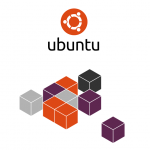
Last month, Canonical released a beta of Ubuntu Core 16. This is not a typical Linux distribution, but instead, one that is focused on Internet of Things and the cloud. What makes the operating system particularly interesting is the use of "Snaps" -- an ingenious modular way of handling software. It combines applications and dependencies into one convenient package.
Today, Ubuntu Core 16 achieves final release status. You can download it immediately for free for PC, Raspberry Pi, and more. With all of the IoT-related botnet news nowadays, this is arriving at the perfect time.
Developers prefer open source tools

New research shows that 98 percent of developers use open source tools at work, with 56 percent revealing that more than half of their development tools are open source, and 18 percent using only open source tools.
The study from code collaboration platform GitLab also shows that more than half of developers (55 percent) are able to choose the tools they work with.
Bodhi Linux 4.0.0 Ubuntu-based distro now available with Moksha 0.2.1 environment
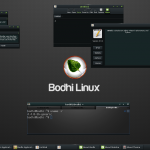
Finding the perfect Linux-based operating system or desktop environment can be a very long journey. Hell, some folks chase the dream forever, sometimes never settling on just one. This is because there are just too many wonderful choices. Even though I love GNOME, for instance, I sometimes find myself tempted by something different.
A Linux distro that always interests me is Bodhi. This Ubuntu-based operating systems is designed to be lightweight, meaning even those with old hardware can have a solid experience. Much of this is thanks to the use of the Moksha desktop environment, which is a fork of the older Enlightenment E17. The DE isn't just light on resources, but quite functional and beautiful too. Today, Bodhi 4.0.0 sees stable release, with the newest version of Moksha, 0.2.1.
Linux Mint 18.1 is officially named 'Serena'

Linux Mint is a brilliant operating system. Based on Ubuntu, it aims to make Linux accessible to everyone. You know what? It succeeds. The wonderful Cinnamon desktop environment is a no-nonsense approach to computing, making it easy for a home user to complete their tasks.
Today, the upcoming Linux Mint 18.1 (based on Ubuntu 16.04 LTS) gets an official code-name -- "Serena". What does this female name mean? According to Behind the Name, it is "from a Late Latin name which was derived from Latin serenus meaning 'clear, tranquil, serene'. This name was borne by an obscure early saint. Edmund Spenser also used it in his poem 'The Faerie Queene' (1590)".
What you need to know about OpenStack
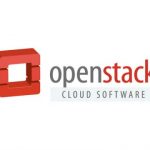
Despite being launched more than five years ago and being supported by high-profile businesses of the likes of IBM, Intel, Yahoo, CERN, Disney, and hundreds of others, OpenStack is not particularly well known in business circles. This is largely because OpenStack is a cloud operating system that works behind the scenes delivering the infrastructure that organizations need to work effectively.
Speed and simplicity are its two main attributes, and since launching the OpenStack project has created thousands of jobs and benefitted countless organizations. With cloud computing continuing to grow in popularity all over the world, it’s vitally important that businesses have a strong understanding of what OpenStack can deliver.
Open source Microsoft Cognitive Toolkit democratizes AI and deep learning

Like many technology companies, Microsoft is pinning a lot on AI -- including the areas of speech and image recognition. To help speed up development, and to enable others to start working on their own projects, the company has released an updated, open source version of the Microsoft Cognitive Toolkit.
This is a deep learning toolkit, previously known as the Computational Network Toolkit (CNTK), and it's available for anyone to use completely free of charge. The toolkit has applications far beyond speech recognition, and it has already been used in Bing, and the latest version includes support for Python and C++.
Canonical explains Ubuntu Advantage benefits -- could your business switch to Linux?
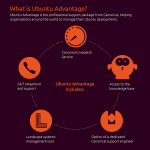
Linux-based desktop operating systems are better than Windows because they are free, right? Whoa there, folks. Neither are necessarily better or worse -- it really depends on your needs. Cost-free operating systems, such as Ubuntu and Fedora, are definitely great for home consumers looking to breathe new life into old machines. With that said, the benefits of Linux extend beyond money and cost-savings.
Linux being free is sort of misleading when it comes to business use too. While a small business with a few employees can sometimes get by without paying for support, larger companies would be crazy to go it entirely alone -- paid support is a necessity for success. Today, Canonical releases a well-designed infographic that explains the benefits of its paid support, called 'Ubuntu Advantage'.
Recent Headlines
BetaNews, your source for breaking tech news, reviews, and in-depth reporting since 1998.
© 1998-2025 BetaNews, Inc. All Rights Reserved. About Us - Privacy Policy - Cookie Policy - Sitemap.